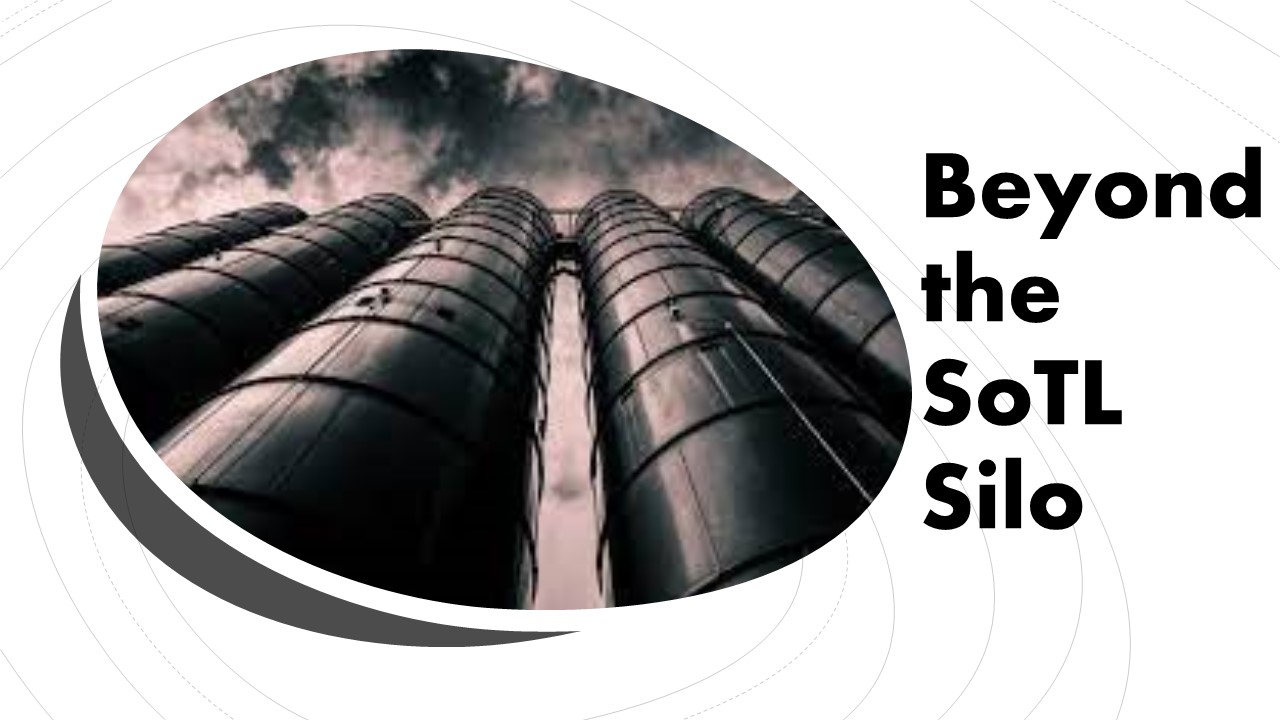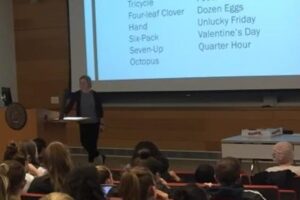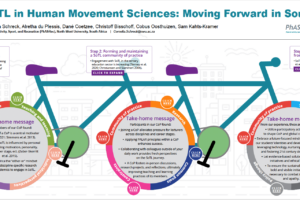
Beyond the SoTL Silo
By Earle Abrahamson, University of Hertfordshire
The practice of SoTL can, at times, appear to unfold in isolation. There is a covert silence that punctuates many SoTL landscapes. This occurs potentially due to fear of identifying with SoTL, distraction from disciplinary research, or simply not knowing that inquiry into pedagogic practice is called SoTL. This blog explores the silence and silos of SoTL and argues that as SoTL practitioners we need to find meaning in our work and engage with courageous conversations.
At EuroSoTL 2022, Professor Jessica Riddell spoke passionately about the Hope Academy – a space that provides opportunity and challenges convention yet is draped in complexity and mess. According to Riddell, hope is messy – so too is SoTL. To those new to SoTL the concept of isolation and silence may bear significance as they learn to explore the complex terrain that defines pedagogic inquiry. Many individuals new to SoTL enter as experts in their disciplinary or professional fields; however, educational research often proves to be a challenge or bottleneck, as they grapple with the ‘troublesome knowledge’ of unfamiliar methods, conventions, literature, epistemes and subject matter. How can SoTL build a combination of academic confidence and ability goals to motivate these individuals as they navigate their way through becoming active in SoTL?
Central to the definition of SoTL is the systematic inquiry into student learning and appropriate sharing of research. This purposeful focus on student learning distinguishes how academics value and view SoTL in practice. In the United Kingdom, SoTL is still perceived, by many, as an alien concept and is met with challenges. This is pertinent to promotion and award recognition activities. There appears to be a continual conflict of justifying “why one does SoTL”. Felten’s (2013) pillars of good SoTL identifies 5 principles for effectively doing good SoTL. Simply put these include 1) inquiry into student learning, 2) context, 3) sound methods, 4) partnerships with students and 5) sharing results appropriately. This last principle is interesting as it suggests an ontological shift in seeing and understanding the outputs of SoTL in different ways including peer reviewed articles and creative use of artefacts such as podcasts and blogs. This was prominent at the 2022 ISSOTL public SoTL group that worked to produce artefacts to better promote SoTL in context.
I am not stating that working in silence is problematic, quite the opposite. Silence is powerful for reflection and capturing thought and action. In fact, I would challenge Felten’s (2013) framework and suggest that a 6th principle is considered, i.e., “reflection and direction”. This would relate to learning from SoTL engagement and fine tuning the questions and research that continue to build SoTL identity. SoTL scholars shape the lens for SoTL practice. The simple consideration of what works often defines the mechanism for SoTL engagement. In this sense, is SoTL seen only as a potential solution to a “time-captured” pedagogical problem? If so, should we all then remain in the silence of the SoTL silo? Being siloed separates purpose from people, and focusses on product, not necessarily process. The challenge for higher education is not about temporary solutions, it is about finding ways to be curious, courageous, committed and culturally inclusive, so that we do, as SoTL defines, recognise and value the journeys of student learning.
Eady et al. (2021) re-imagine SoTL as a thread that connects the lived with the learned experience and works to produce a T-shaped graduate. The T-shaped graduate learns to balance content with context, culture with career, courage with confidence. The pandemic crisis was testimony to how isolation drives new ways of working, connecting, and thinking. The focus of HE is developing a commitment to lifelong learning, a passion for inquiry, and a redirection of questions. The move is not about providing answers but reframing questions that enable creative solutions.
It would be foolish to assume that SoTL is the answer to all pedagogic problems. It would be foolish to sit in isolation and contemplate the ownership to a solution. It would be foolish to focus on one way of doing, being, creating. For me, SoTL brings communities together, it promotes insight and encourages paradigm shifts to address what matters most. As we focus on ISSOTL 2023 and celebrate a new dawn, a new idea, we return to the understanding, captured in principle 2 of Felten’s 2013 framework, of context mattering. To move beyond the silo, we all need to reflect on what matters most and how through shared vision we learn to celebrate the genesis of student learning. We need to have the courage “to SoTL” (Godbold, et al. 2021) and ask difficult questions. SoTL very much starts in isolation as ideas are generated, but the real challenge is learning to convert isolation into collaboration. The constantly changing landscape of HE makes it harder to know what the future holds. We need to examine what lies in front of us and not between us to unravel the future directions for SoTL.
SoTL needs people to drive process. What works in one setting may not work in another. As we learn to ask better questions, develop new conceptual models, and build renewed identities, we may be better equipped to dismantle the confines that dictate the architecture of the silo.
References
Eady, M. J., Abrahamson, E., Green, C. A., Arcellana-Panlilio, M., Hatfield, L., & Namaste, N. (2021). Re-positioning SoTL toward the T-shaped Community. Teaching and Learning Inquiry, 9(1), 262-278.
Felten, P. (2013). Principles of good practice in SoTL. Teaching and learning inquiry, 1(1), 121-125.
Godbold, N., Irving-Bell, D., McSweeney-Flaherty, J. M., Prusko, P. T., Schlesselman, L. S., & Smith, H. (2021). The Courage to SoTL. Teaching & Learning Inquiry, 9(1), 380-394.




